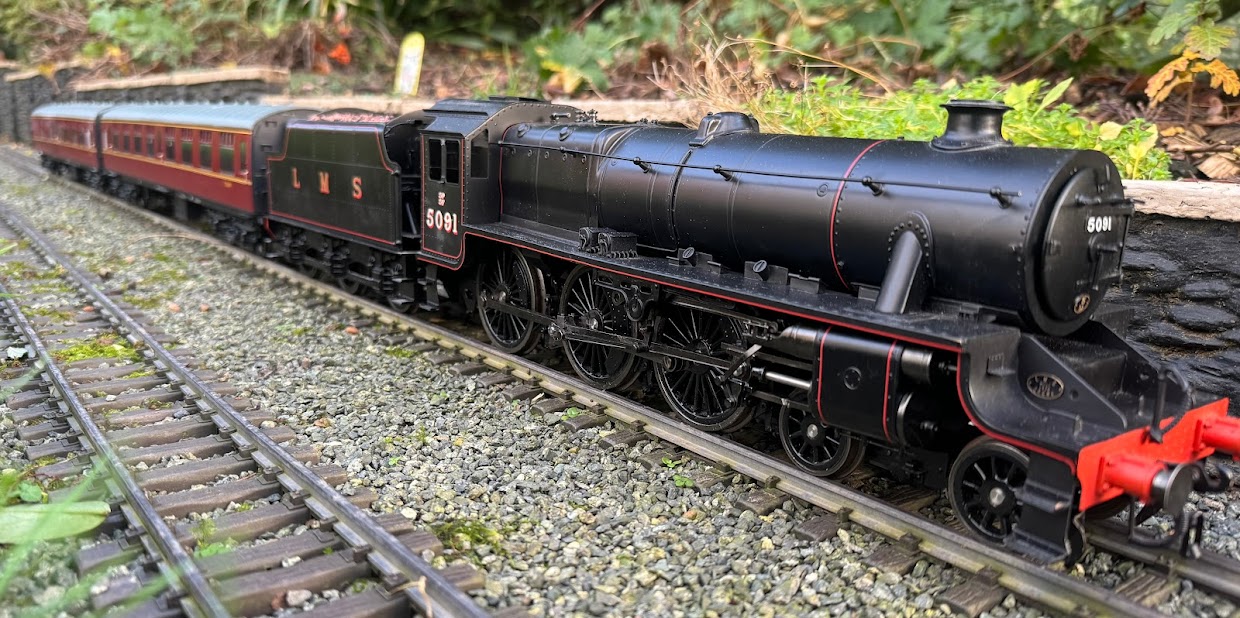I bought the signs several months ago, but needed a means of keeping them upright. I hit on the idea of making planters out of foam board.
Monday, 15 December 2025
Saturday, 25 October 2025
Sunday, 29 June 2025
Sunday, 11 May 2025
Monday, 21 April 2025
Some Views of the Railway
Looking up the garden. The branch line runs up the lefthand side of the garden. The bridge which carries the mainline over the branch line can be seen in the background. The waiting room aka train viewing area looks out across the garden.
Looking down the garden. The main line runs along the top and righthand sides of the garden. Stoke Works station is halfway down the righthand side of the garden and Brookside station (an intermediate station on the branch line) is halfway down the lefthand side of the garden. This photo shows what the railway looked like before (cutting on the left) and after (cutting on the right) adding stone walls and ballast. The cutout in the lawn is where the landslide happened in Diesel Save the Day Part One.
Looking up the mainline side of the garden. Stoke Works sidings can be seen on the righthand side of the photograph with the station beyond it. In the distance the viaduct and bridge leading to Stoke Prior station is visible. New stone effect walls are being added to edge the lawn as the railway sinks below it. A stock of walls is being held in Stoke Works sidings. Brookside station is marked by the patch of pink flowers in the background.
Looking up the garden. Wychbold station is in the foreground (behind the raised bed).
Tuesday, 1 April 2025
Friday, 21 March 2025
Plans for the 2025 Season
It’s that time of year to bring the railway back out of hibernation and film some more adventures of Thomas and Friends. However, there’s some work that needs to be done on the railway before filming can begin.
Subscribe to:
Comments (Atom)





















